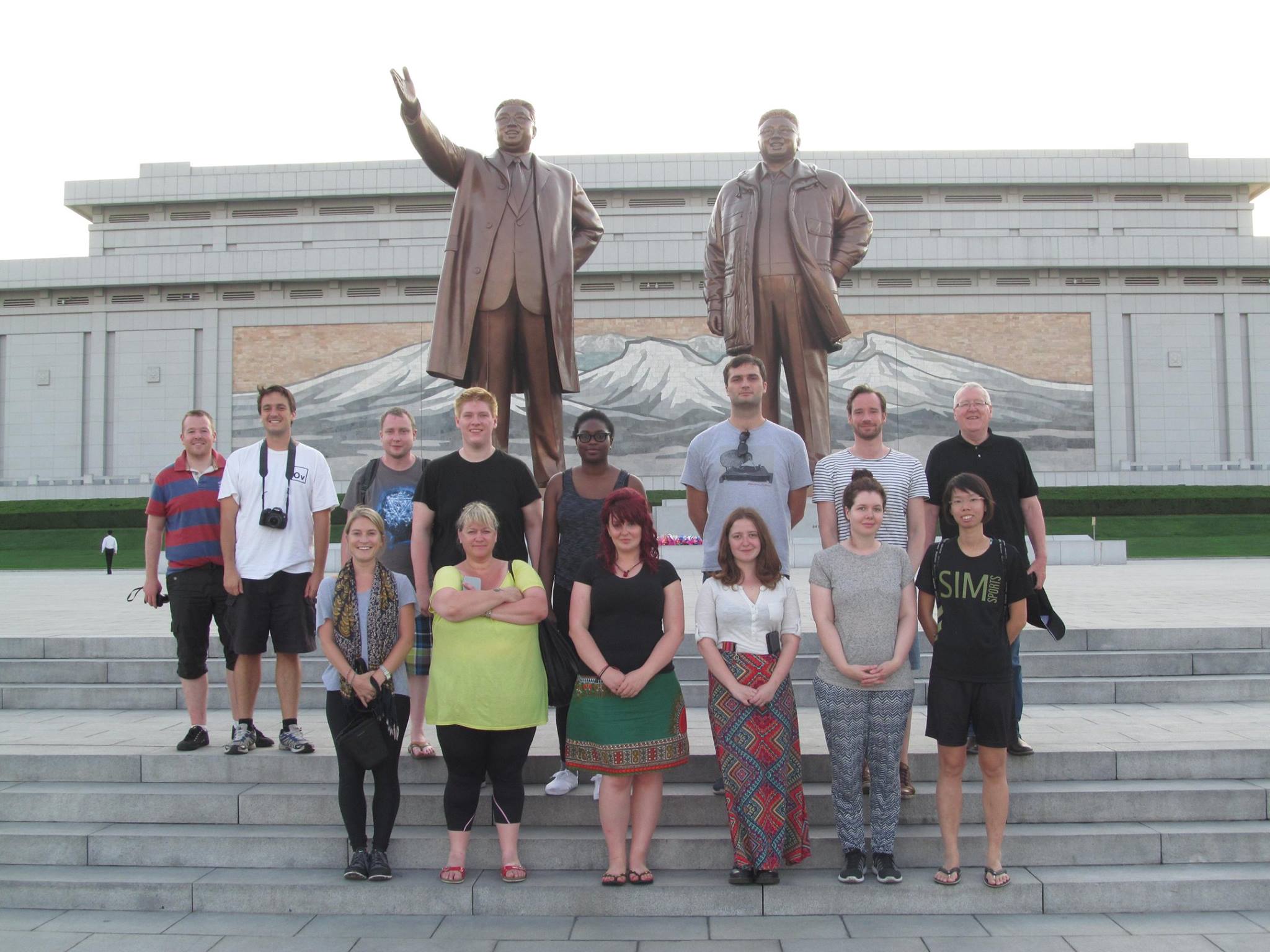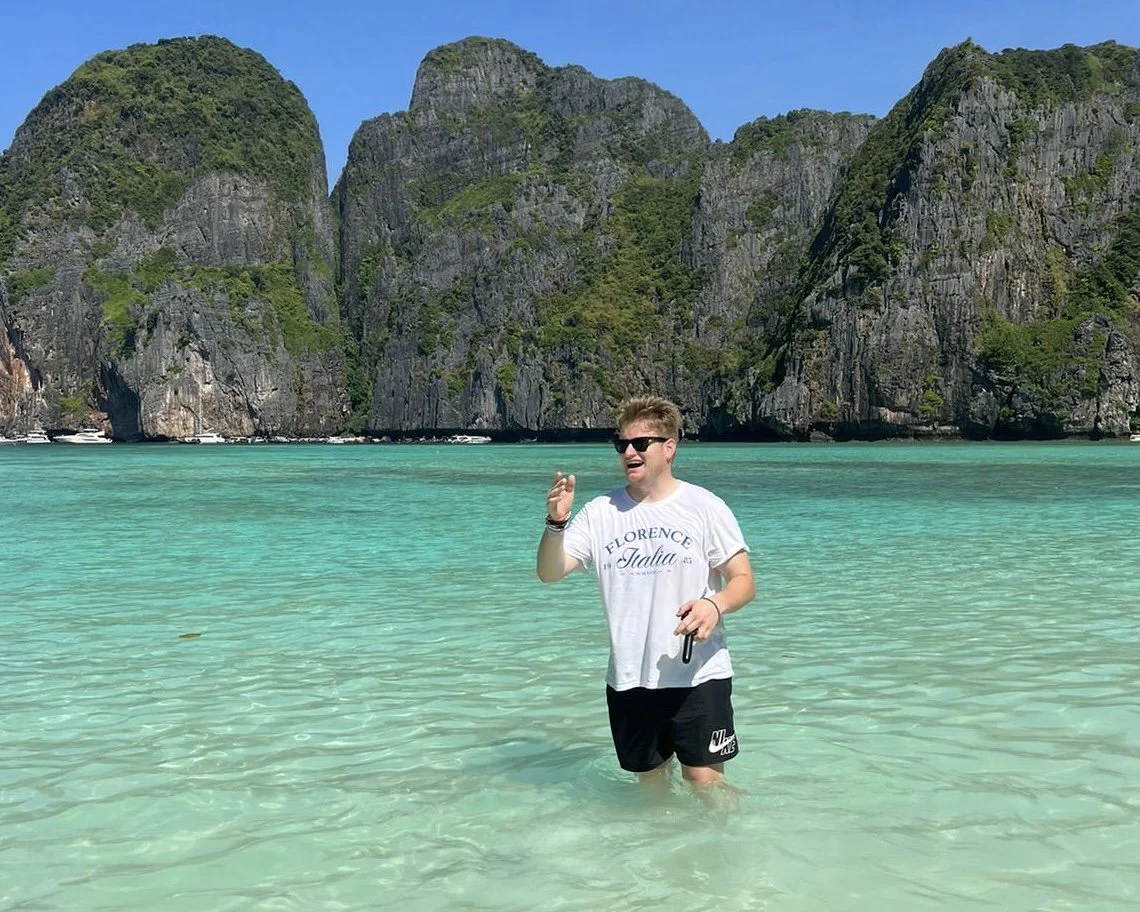The Rise of Danger Zone Tourism
/Armed Ethiopian soldiers, a sight that can be seen on Lupine Travel's Somaliland & Ethiopia tour. Image credit: Dylan Harris/Twitter
Adventure has been a part of the human spirit since our species started to exist. Some of history’s most prominent names such as Christopher Columbus, Sir Francis Drake, Vasco da Gama and Roald Amundsen all took risks in the name of exploration.
In 2017, that intrepid nature is alive and well and, thanks to the internet and other advancements in travel, almost all of the world is accessible.
One man that’s helped that happen is Dylan Harris. The Wiganer owns Lupine Travel, a company specialising in providing tours to unique and obscure destinations around the world such as North Korea, Iraq, Eritrea and Somalia.
He started the business in 2008 after his travelling to most of eastern Europe, whose Soviet feel had appealed to the traveller in him since a young age. He would DJ on the weekends in Wigan and Manchester, then travel in the week, before a trip to Russia and China on the Trans-Siberian Railway changed his life.
“Every time people ask what I do and I say ‘travel agent,’ they think it’s boring. Then I start to explain and their expressions change,” proclaims Harris.
“I got over and the [Trans-Siberian] trip went brilliantly – it was the best trip I’d done in my life. Everyone I met along the way all said the same thing about it taking them ages to plan it because the travel agencies were so expensive, and they were saying that it would be amazing if somebody did this on the cheap. So that kind of stuck in my head.
“After that trip, I finished in China and I went up to the North Korean border. Again, that was too expensive, but I met a Chinese guy who went in there every week and I was just chatting to him. He was the only person who could speak English in this city on the border. He sorted me a visa and charged me like £400 for a few days in North Korea, where it was like four or five grand if I’d booked it somewhere else.
“I got along with him really well and we kept in touch. A few months later I started thinking that there must be a market in this. There can’t only be me that wants to go to North Korea, this guy can do it for £400 and I can add a couple of hundred quid on top of that for my cut.
“I was telling people the idea and they thought I was ridiculous. They said: “Nobody wants to go to North Korea!” And I thought, well, I’ve got nothing to lose because I don’t have to put any money into it, I can build my own website and just put the tours up.
Lupine Travel's tours to North Korea give customers the chance to see festivals like this. Image credit: Lupine Travel
“I spoke to the people I met along the way and said if I do this will you arrange stuff for me, I’ll book it through you and send you the money? So they were all up for it, including the guy in China, and so I put the website up.”
The first three months went slowly, with the initial tours mainly focused around North Korea and Chernobyl in Ukraine. Harris had a lot of people contacting him just to question the legitimacy of his website.
His website continued to grow sporadically, with word spreading on message boards and forums. That was until one particular day, when popularity soared.
“Around about that time the press got in touch with me because I was putting on a golf tournament in North Korea, so I’d given an interview over the phone and the next day it was all over everywhere. It was in the Daily Mail, The Guardian, The Independent and it was all over American news, CNN and everything, just from this one interview.
A Lupine Travel group take a photo in North Korea. Image credit: Lupine Travel
“The phone the next day was constantly ringing and it was that day it really took off. I had to quickly get a new website done and loads of people just started booking.”
Despite the high-risk nature of his tours, Harris swears they are safe and constantly monitor security and any ongoing situations in the countries he operates in.
“We have various security reports that we get alerts on constantly, but there’s a few that are standard ones. As soon as anything happens, like there’s an attempted bombing, or a kidnapping, we get an alert straight through to our phones.
“If anything did happen, where we thought that things have become too dangerous to stay in the country, then we just get out as soon as we can. People do need their own personal insurance to cover them for medical situations though.
“Generally, the people who get in touch are not worried about it because they’ve researched it and they’re fine. The problem that usually happens is when a situation changes. So we’ve just had a group come back from North Korea and there was supposed to be 24 people the in group and 10 people cancelled, which we’ve never had before. It’s to do with all the stuff with Trump and that’s been building, the foreign office changed their advice and people really stared to get worried then. People were phoning up and emailing and asking if it was safe to go.
Harris' travels have seen him left to run a bar in Syria. Image credit: Dylan Harris/Twitter
And taking pictures with armed guards in Pakistan. Image credit: Dylan Harris/Twitter
“That was a hard situation because, generally, I always say about North Korea, don’t believe what you read in the press. Once you get over there, it’s completely different and it’s the safest destination that we run trips to.
“The most concern we get is from Americans going to North Korea. But you just have to explain that you need to use common sense and there will be no trouble whatsoever. They don’t arrest somebody for no reason. There has to be a big reason for them to do it.”
That’s a notion that Gunnar Garfors shares. The Norwegian author and traveller has visited every country in the world, and has experienced his fair share of hairy situations.
Gunnar Garfors has visited every country in the world including Trinidad & Tobago. Image credit: Gunnar Garfors
“It’s all about common sense. Whether you’re talking about a particular country or not, people there are friendly and they are quite honoured as you as a tourist, or traveller, choose to go to their country. But again, common sense tells you not to go down a dark alley at night in poor neighbourhoods, or any neighbourhoods for that matter, and stay out of war zones unless you have someone local who can walk you there.
“If you’re going to worry about that, you may as well stay at home, stay in your cupboard and stay in your bedroom the rest of your life! When I was in Mogadishu, Somalia that’s when the terror attack in Barcelona happened.
“North Korea is a good example. As a tourist, there is nothing that will go wrong with it. As long as you stick to the rules, you’ll be fine. You don’t go into somebody’s house and nick something, or if they ask you to take your shoes off, you take your shoes off! You show respect to people and their cultures and you will, generally, be safe.
“Even in a country at war, you will always find a peaceful side. I go in and try to get to know local people in advance through Couchsurfing or some other social media – you can find people everywhere.”
The Foreign & Commonwealth Office do advise against travel to some of the areas of the world, including a number of areas covered by Lupine Travel. Safety and security is always of paramount importance and Lizzie Andrews, PR and Media Executive at ABTA, gives some recommendations for people thinking of going to these places.
“When choosing a holiday, ABTA always recommends booking through a reputable tour operator as they will be able to provide advice on the type of holiday and activities you want to participate in,” she says.
“ABTA strongly recommends that all travellers check the Foreign Office travel advice for their destination before they book a holiday and again before they travel. The advice contains important information from the visas you may need and health advice, right through to local laws and customs. It also highlights whether there are any areas of the country restricted to travel.
“Customers should always ask questions about the destination, and about any activities they are planning to do. This allows them to make an informed choice about the safety measures offered by the company concerned.”
But while safety and security is always a factor for tourists no matter where they travel, people are choosing to brave lesser travelled and more dangerous roads than ever before.























Travelling as part of your job is super-exciting, but some people think it’s a holiday – and I can actually see why they might.